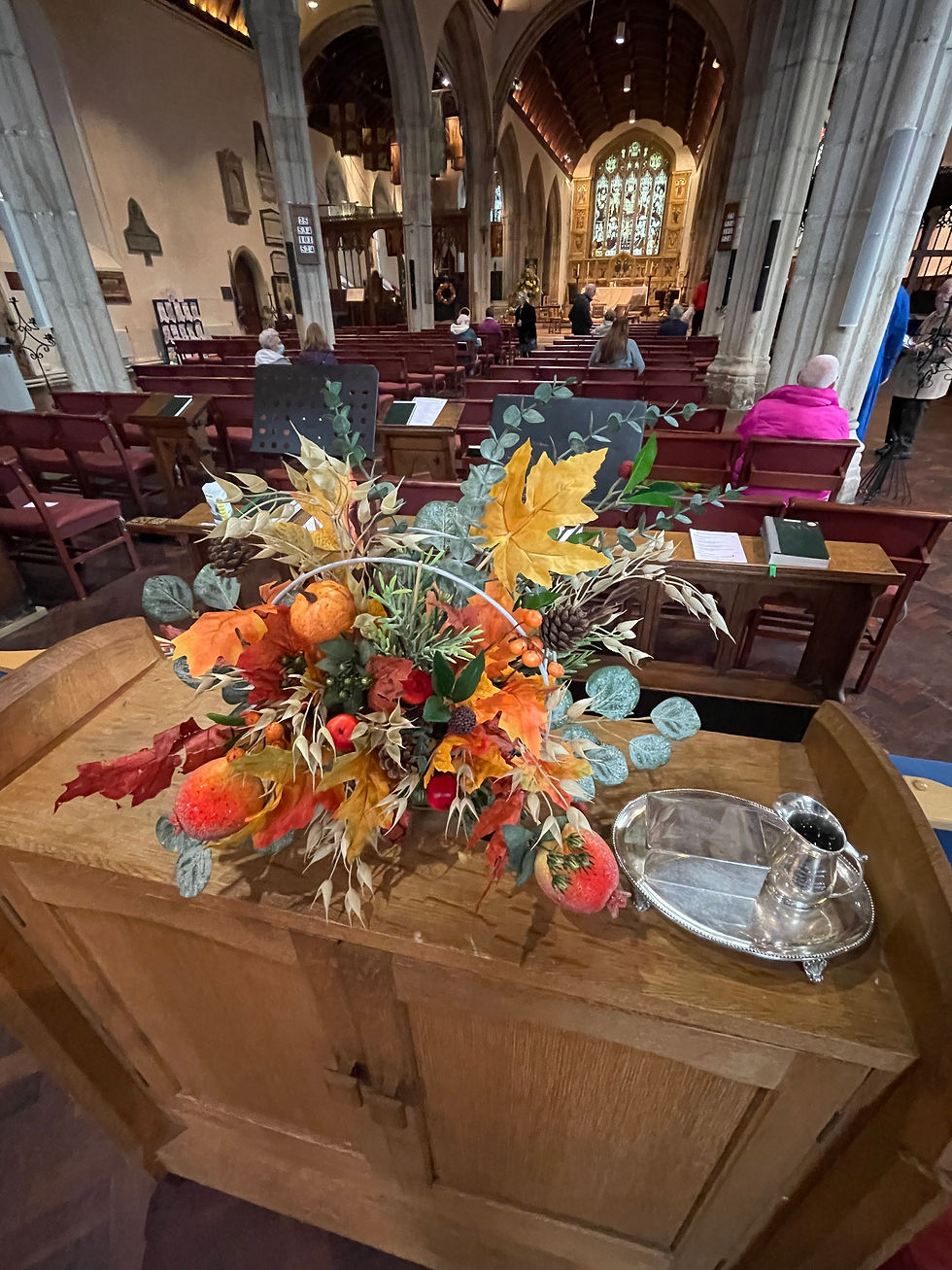Claire’s Second ‘C’
- barbarabrittain212
- Jun 26, 2020
- 4 min read
Starter for 10 – Perceptions during lockdown have changed. What jobs do we now think are really important that we did not notice or consider to be so important before the pandemic?
We named cleaners, care workers, careers at home, recycling and delivery services.
Dorothy also shared how the extra time has given her the chance to spend more time with the Lord and reading books in the Bible. This is really important and Dorothy has a new saying about everything else, “Leave till tomorrow what you can’t do today!”

Today’s Bible Study is about a job that all Christians are called to do.
Recap: it would be a great idea to read, re-read and even memorise, if possible, the Bible texts from last week’s Bible Study, as they are verses that tell us the good news about Jesus:
Romans 6:23; Colossians 1:13-14; I Peter 3:18; Ephesians 2:12-13, 19; 2 Corinthians 5:21; Titus 3:3-7 and Luke 15:11-32.
Main Question: Why should we share the good news about Jesus?
We remembered discussing Jesus’ great commission from a recent Bible Study with William. We are called by Jesus to go and make disciples, baptising and teaching them about Jesus.
REASON 1 Because Jesus calls us to join in with his mission!
Whatever Jesus did, we are called to do too. Dorothy said this was exciting and scary; scary because can we make people understand and what words should we use? Kimberley said it was a challenging. Are we really equipped to do the task?
We read from Romans 10:9-15, the background to which was the relationship between Jews (who had not accepted that Jesus was the chosen one of God) and non-Jews (Gentiles).
Claire asked, Who is saved? All who believe in Jesus, are saved from their sins and have the promise of eternal life. Claire explained this theologically: 1. saved from and 2. save to/for = saved from sin and saved to the future with God.
How do we know someone is saved? They declare Jesus is Lord and believe.
The gospel is for everyone. Lea emphasised that it doesn’t matter what race you are, Jew or Gentile, God is God of everyone. He added that this is what the missionaries did when they went to other countries to tell everyone on earth about Jesus so that they are saved and have their lives enriched by God. Jews and Gentile show two sides of the same coin:
1. Everyone can come to Jesus (there are no outsiders) and
2. Everyone needs to come to Jesus (there are none who are already on the inside).
Claire asked us to note the chain of events for people to be saved. The timeline goes like this:
People are sent (by Jesus and his commission) – they share the gospel – people hear it – people believe – people call on the Lord – people are saved. This pattern goes on and on as more and more come to God.
Claire asked the group to reflect on their own timeline. Dorothy said it was not a quick decision for her to accept the gospel. She attended a church where she saw Christians who had a quiet joy and it took her a while to realise that she could have the same, but she did eventually. Helen said it also took a long while for her from hearing to accepting. It was Nicky Gumbel who finally convinced Helen to accept the good news, when he had a guillotine, as a visual aid, around his neck! He said that Jesus had died for us. Helen asked, “Why would someone die for me? I’m not worthy. If they do die, you’ve got to accept it, as it’s so amazing!” Barbara shared that when someone told her the good news it made logical sense with regards to what she already knew about Christianity and she accepted it. Kimberley shared it was a Sunday school teacher who shared the good news with her. Claire remarked how nice it would be for that teacher to know that she sowed the seed that led to Kimberly being a thriving Christian today.
Now that we have accepted the good news, where do we find ourselves in the chain of events?
Some said we are struggling to share. Dorothy said that in the past she shared the good news, not by preaching or talking, but through song. Lea added that he loved the song, “Freely, Freely … go in my name and because you believe, others will know that I life.”
REASON 2 So people can hear, believe and be saved.
Philemon verse 6 is about actively sharing your faith “… the sharing of your faith may promote the knowledge of all the good that is ours in Christ”. Dorothy said how this can be done over the phone, rather than in person, as she has been sharing the gospel with many on the phone during the lockdown.
REASON 3 So we can grow in our own understanding of the good news
Lea commented on how Philemon 6 makes good sense – we grow in our own faith when we share it with others, just as a teacher consolidates their knowledge as they consider how to express it to their students.
Jesus’ commission is daunting! We are not him. What are the barriers to sharing the good news?
Being mocked; being considered weird; having an inadequate vocabulary; lack of opportunities; generational differences; people thinking it’s not relevant to them.
Next week we will explore practical questions and create new ideas of sharing the good news by considering various situations.



Comments